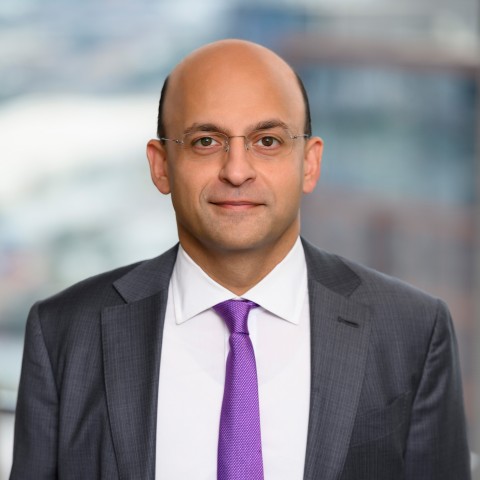NEWARK, N.J.--(BUSINESS WIRE)--Institutional investors in North America significantly lag their counterparts in Europe when it comes to taking action and adapting their portfolios in response to climate change—but more reliable data, clearer regulatory standards and stakeholder activism can push them to narrow the gap, according to a new survey from PGIM, the $1.5 trillion global investment management business of Prudential Financial, Inc. (NYSE: PRU).
PGIM’s survey, conducted in partnership with Greenwich Associates, polled 101 institutional investors throughout North America, Europe and Asia with greater than $3 billion in assets under management and found that 90% believe climate change is an important issue for their organization. However, among North American investors, only 47% actively incorporate climate change into their investment processes, compared to over 80% of investors in Europe.
“North American investors recognize that climate change is emerging as a material factor but are still in the early stages of adjusting their investment processes and allocations to account for this,” says Taimur Hyat, chief operating officer for PGIM. “The big shift in climate change thinking in the U.S. will come when investors recognize that incorporating climate factors into the investment process is essential for optimal risk-return decisions, regardless of whether you tilt towards ESG objectives or not.”
Investors say doing good requires good data
While over two-thirds of European and Asia-Pacific investors state they have integrated climate change into their investment process because it is the right thing to do, in North America, fewer than 1 in 3 investors share this view.
Even respondents who think climate change is a real and relevant problem say a lack of reliable data and analytic models makes it difficult to evaluate the impact on their portfolios. Fewer than a quarter think existing climate change models are effective, and less than 10% are currently utilizing these tools in their decision-making processes.
“One of the primary causes of the action gap appears to be uncertainty about climate models and analytics,” says Davis Walmsley, Greenwich Associates head of client relationships, investment management. “This may be an area where better understanding and deployment of existing data and analytics may encourage more investors to incorporate climate change into their portfolios.”
The tide is turning as investors act on climate
Despite these gaps, institutional investors are making progress in addressing the issue of climate change.
Just over half the institutions surveyed that have incorporated climate change into their investment process have started avoiding investments that might contribute to climate change, and about 40% are proactively pursuing investments that mitigate the impacts of climate change.
Meanwhile, many other study participants are in the process of analyzing climate-related risks and opportunities, assessing the materiality of climate change to their portfolios and identifying possible portfolio responses.
“The good news is that, the trend line shows institutional investors around the world recognize the importance of climate change,” says Hyat. “They are building climate change into their investment processes and creating frameworks for evaluating both the impact of their investments on the climate, and the impact of climate change on their investments.”
For the full survey results, read the report: “Seeking Higher Ground: Institutional Investors Respond to Climate Change.”
ABOUT PGIM
PGIM, the global asset management business of Prudential Financial, Inc. (NYSE: PRU), ranks among the top 10 largest asset managers in the world* with $1.5 trillion in assets under management as of Dec. 31, 2020. With offices in 16 countries, PGIM’s businesses offer a range of investment solutions for retail and institutional investors around the world across a broad range of asset classes, including public fixed income, private fixed income, fundamental equity, quantitative equity, real estate and alternatives. For more information about PGIM, visit pgim.com.
Prudential Financial, Inc. (PFI) of the United States is not affiliated in any manner with Prudential plc, incorporated in the United Kingdom, or with Prudential Assurance Company, a subsidiary of M&G plc, incorporated in the United Kingdom. For more information please visit news.prudential.com.
*Prudential Financial, Inc. (PFI) is the 10th largest investment manager (out of 527 firms surveyed) in terms of global assets under management based on Pensions & Investments’ Top Money Managers list published on June 1, 2020. This ranking represents global assets under management by PFI as of March 31, 2020.




